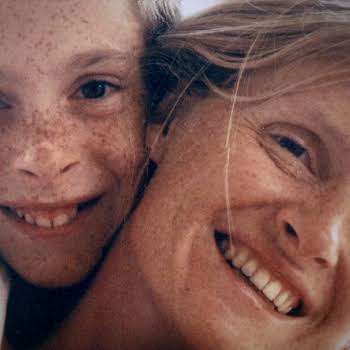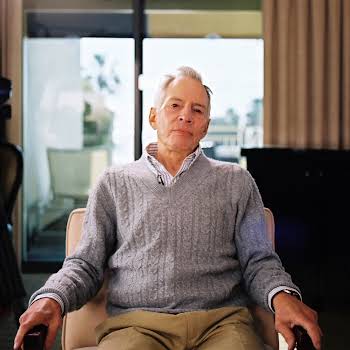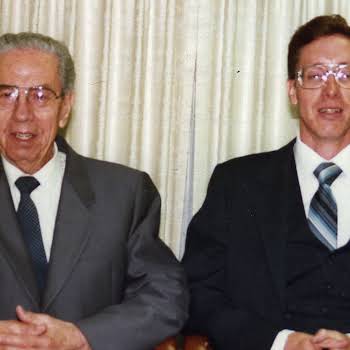Is our appetite for investigative journalism driving the exploitation of people’s pain?
By Sophie White
11th Jan 2019
11th Jan 2019
Does our hunger for ever more salacious and satisfying narratives mean that non-fiction storytelling and journalism is struggling to find reality that’s compelling enough and what about the lives being documented? asks Sophie White
The first season of Serial by NPR, podcasting’s breakout true crime series – the series that finally meant we no longer have to go into lengthy explanations of what a podcast is for various relatives at family functions – has been downloaded, to date, more than 200 million times.
In 2014, Sarah Koenig, an alumnus of This American Life and former New York Times reporter, created a mega hit of unanticipated proportions when she revisited the murder of student Hae Min Lee and investigated whether there had been a miscarriage of justice with the imprisonment of Adnan Masud Syed. The following year, Making a Murderer and the Jinx landed and a cultural obsession was born.
Investigative journalism and documentary-making are, of course, nothing new, but the intense interest in these stories of late has undoubtedly affected the process of finding and shaping the truth. Non-fiction storytelling has always occupied a grey area, creators work in facts but, as we all know, how one represents those fact is where the thrust of the story lies.
In the wake of the first season of Making a Murderer, accusations abounded claiming the filmmakers omitted crucial elements of the Steven Avery story that could potentially hurt their narrative of a wronged man. The creators of acclaimed documentary Catfish went on to create the MTV series of the same name that, several seasons in, has all but discarded the tenets of documentary-making and settled instead on scripted reality.
After the Missing Richard Simmons podcast by Dan Taberski wrapped in 2017, audiences purported to be unsatisfied with the ending, which packed none of the narrative punch and dramatic climax we have become accustomed to in the last few years.
“If you’re filming a story as it unfolds no one can know what’s going to happen,” explains Irish producer and documentary maker Rachel Lysaght, who says, despite the increase in the genre’s popularity, funding is still a huge issue.
“Even though the documentary is going through somewhat of a golden age in terms of podcasting and things like that, and the audience appetite is great, but in terms of financing, I still find the market is very conservative. If the project is about people we’ve heard of or it’s a high profile case, the financiers are going to have an easier job of it.”
“When The Jinx was being pitched, no one could anticipate what would happen. As a producer, you know your narrative arcs and overarching themes, but nobody knows where you’re going to end up with it. It can make it tricky for investors because they don’t know what they’re getting. It’s always been the problem with observational filming.”
It’s the problem that arises when real life becomes entertainment. There’s no guarantees of closure. This was my feeling as I finished Jon Ronson’s latest series, The Last Days of August, just released on Audible, which explores the death of August Ames, a porn performer who died by suicide in 2017. With no dramatic denouement, I found myself complaining that the ending was a bit flaccid. Then I considered what impulse or craving was left unsatisfied and recoiled on realising that, if I’m honest, it was the craving for the kind of macabre and outlandish detail so often delivered in this new age of investigative journalism.
Have our appetites for more thoughtful or open-ended content waned? Consider S-Town, another acclaimed series from the producers of Serial that had the kind of plot twist that could turn a thoughtful character study into a huge hit. Sadly the “plot twist” was no narrative device but the very real death of one of the protagonists.
The caricature of the journalist feasting vampire-like on the lives of others starts to feel a shade less hyperbolic when one considers what it must be like to have your life mined by someone else for content. In the 1970s, the subject of a Sunday World exposé about swingers took his own life after the feature was published. Funnily enough, Ronson detailed the story in his book So You’ve Been Publicly Shamed.
Criticism was levelled at Taberski, maker of Missing Richard Simmons, as his series unfolded and what started as an investigation appeared to turn into a less palatable pursuit of the reclusive former star. The New York Times called it a “public hounding”.
But is it a public hounding at the behest of a hungry audience hunting for its next true story “binge”?
It’s a genre that raises knotty moral issues. Reality TV exploits willing participants but documentary is another beast altogether. Ronson and his producer grappled with ethical grey areas in The Last Days Of August. Seemingly, in their pursuit of truth, they cast doubt on the veracity of widower Kevin Moore’s explanation of his wife’s death. It is uncomfortable listening, as Moore defends himself while he grieves a wife he lost just months before. Ultimately, Last Days strikes me as as much an exploration of the dark side of the porn industry, as it is an indictment of investigative reporting and our own demand for compelling narrative whatever the cost to the subject’s life or reputation.
Casting JonBenet by Kitty Green is another documentary that walks a taught ethical tightrope. “Is it a crime documentary? A satire of prurient crime documentaries? A drama?” asked the Guardian of this feature length piece that filmed actors auditioning to play members of the famous tragic family and shaped them espousing various theories about the case into a layered and fascinating work of storytelling. Compelling but dubious in terms of the morality. While the Netflix Original doesn’t purport to be representing the truth of the crime, each of the “characters” Green is trying to cast are real people who have already suffered a great deal.
The intention behind the work must always be considered and perhaps it’s time to question ourselves more closely about what we are consuming and who that affects?
As Lysaght puts it, “What gives me the right to tell your story and condense it down to 40 minutes?
Documentary is not news, it’s not current affairs, it’s not reportage. It’s telling a story with an angle, an intention, but I do feel strongly that you must make work with integrity.”
Photo by Jakob Owens on Unsplash























